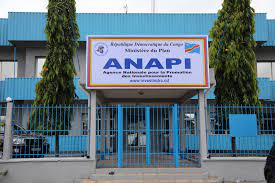- The DRC is creating Africa’s fastest-growing economy and investment hub.
- ANAPI is working to remove hurdles to investment reforms in the DRC.
- ANAPI prioritizes changing the DRC narrative internationally.
Starting a business in the DRC
The government of the Democratic Republic of Congo (DRC) under President Félix-Antoine Tshisekedi has adopted a comprehensive strategy to fast-track economic development and attract investment to the country. Thus, through its Ministry of Planning, the government has established the National Agency for the Promotion of Investments, more commonly known by the acronym ANAPI.
Despite good intentions from the government and the country’s enormous potential, the underwhelming economic narrative of the DRC remains a grey area. News of violence, corruption, and instability have destroyed DRC’s story as told from within and without. Therefore, to make starting a business in the DRC easier, ANAPI’s first task is to rebrand the DRC. The rebrand will change the country’s image. Consequently, the world will see the DRC for what it truly is; one of Africa’s fastest-growing economies and investment hubs.
Promoting international investment in the DRC
In an effort to improve its business environment, the government of the DRC, through ANAPI, has eased its business opening procedure. ANAPI can achieve this by reducing, simplifying, and making all the procedures surrounding the business opening process transparent and cost-effective.
As such, ANAPI will work specifically to promote investment options in the DRC. As a government body, ANAPI is responsible for improving the country’s business climate.
“To achieve this goal, ANAPI conducted a study to evaluate the effectiveness of reforms that were initiated to improve the business environment,” explains the ANAPI management in a press communique.
The study focused on five indicators. These include the start of economic activity, taxation (land tax and rental income tax), building permits, real estate transfers, and the quality of administration and institutions, details the release. ANAPI went on to identify the impact of the government policy reforms. As such, they sought to ascertain their impact by speaking to the reforms’ beneficiaries.
Earlier this year (February 7, 2023), ANAPI released its preliminary findings. The results showed that while progress has been made, there remains room for improvement, and the negative image persists.
“…indicating a general level of implementation of the reforms that are still low at the provincial level, coupled with an apparent disparity between the provinces in terms of both ownership of the process of implementing the reforms initiated at the central station and the application of the reforms on the ground,” they reported.
The report showed that; “Only the areas of Kinshasa, Equateur, and Tshopo scored well on this indicator and obtained a score greater than or equal to 50 out of 100 in the general ranking.”
Why have these reforms delayed
So far, according to the study results, at least five factors are hindering the implementation of the reforms. They include “Lack of communication and awareness of business climate reforms, administrative red tape, the absence of economic decrees affecting the business environment, and resistance to reforms by the public administration, which is reflected in the failure to display the costs and procedures of various operations.”
As such, ANAPI concludes that; “These factors hinder the growth of businesses and limit their ability to create jobs.”
Also Read: DRC reassures investors while Rwanda remains critical of US statement
Reform indicators
Start-up of economic activity
The “start-up of economic activity” indicator measures whether the reforms have made setting up a business in the DRC easier and faster. The reform was setting up a one-stop shop for would-be businessmen and investors to open their businesses. The government opened the Tribunal de Commerce and the Tribunal de Grande Instance or GUCE.
Had the government implemented this reform effectively, it would have reduced the time, costs, and procedures needed to set up a business in the DRC. However, the survey results showed that “…applicants who went to the stop shop (GUCE) to obtain the administrative documents needed to operate had to spend an average of 41, 40 and 80 days respectively. (Valium) ”
“On the other hand, in the majority of provinces where the GUCE is installed, entrepreneurs spend between $103 and $293 for all the formalization procedures for their activities; and, on average, $289 for those who start their operations at the TRICOM level, and between $78 and $775 for those who go to the TGI.”
The tax indicator
Looking at the tax indicator, only 11 per cent of respondents had any idea of the tax reforms. Moreover, most people went on paying the old taxes. However, on the positive side, most people demonstrated awareness of the ‘property tax sub-indicator.’ Up to 61 per cent of respondents said they were familiar with it.
Real estate transfer
The survey results again showed little impact on the real estate transfer indicator. According to the findings, “The vast majority of respondents have a low level of knowledge about the transfer tax rate applied in their respective provinces.”
In fact, the results showed that 77 per cent of respondents had paid administrative fees directly for a real estate transfer operation despite the reforms.
Also Read: Angola – Important Amendment to the Private Investment Law
Gearing for a better investment climate in the DRC
ANAPI recommends a series of measures to improve the effectiveness of the reform indicators. With this, ANAPI remains cognizant that to improve the business climate in the DRC, the survey results must be addressed first within the country, and an awareness campaign must be conducted internationally to change the narrative.
To achieve these two goals, ANAPI has announced plans to enhance the Public-Public Dialogue and the Public-Private Dialogue. Moreover, ANAPI hopes to improve the social conditions of public officials in charge of implementing the reforms.
ANAPI also admits the need to fight against corruption and what it refers to as ‘other economic crimes.’
Most importantly, ANAPI is moving to establish the appropriate institutional framework, a task delegated to the Business Climate Unit. Regarding capacity building, economic actors should be able to take advantage of the opportunities offered by the reforms.
“The recommendations made in this study could help improve the business climate in the DRC and strengthen the country’s competitiveness on the international scene,” ANAPI affirmed.
Finally, ANAPI confirms its dedication to the reforms by taking action based on the survey findings.
“Furthermore, the results of this study could enrich the national barometer on the business climate currently being implemented by the Business Climate Unit and allow for better preparation of the revision of the roadmap of government reforms on the business climate currently being prepared,” the body concludes.
ANAPI’s primary responsibilities
- Work to improve the business environment through permanent advocacy and advice to the government.
- Promote the positive image of the DRC as a destination of choice for investors in Africa.
- Provide investment opportunities to domestic and international investors to induce them to invest in the DRC.
- Provide various services to investors to facilitate their establishment and competitiveness.
- Grant customs and tax incentives to investors whose projects are eligible for the benefits of the Investment Code.











